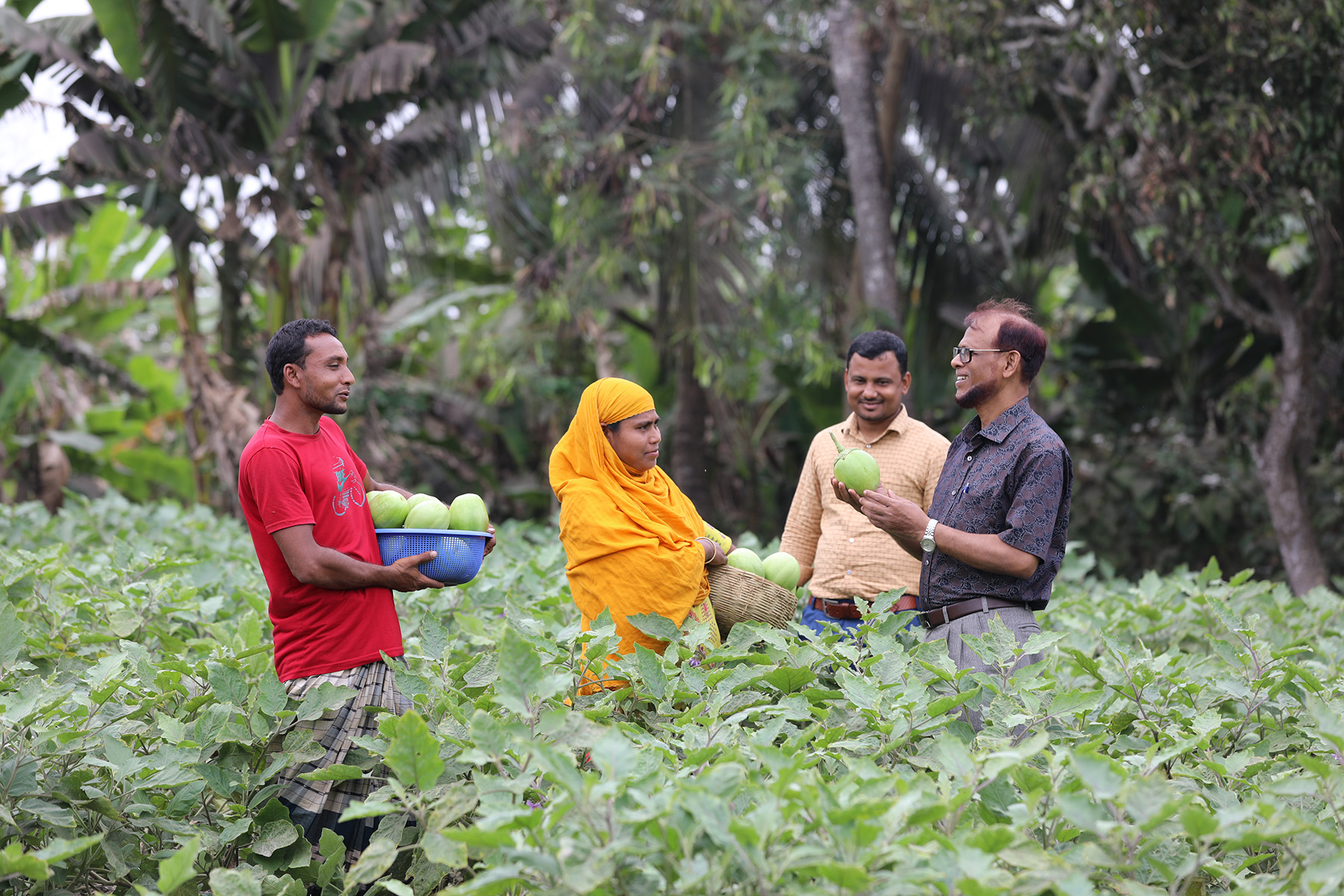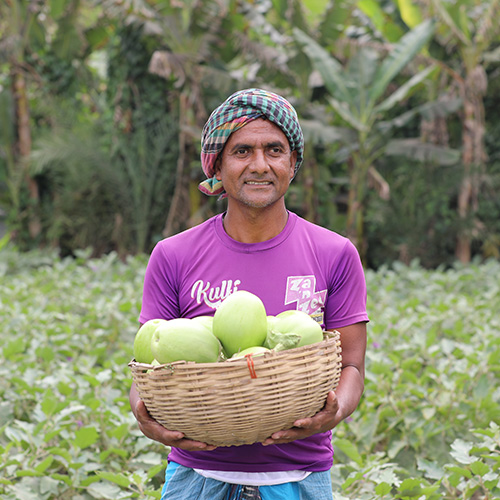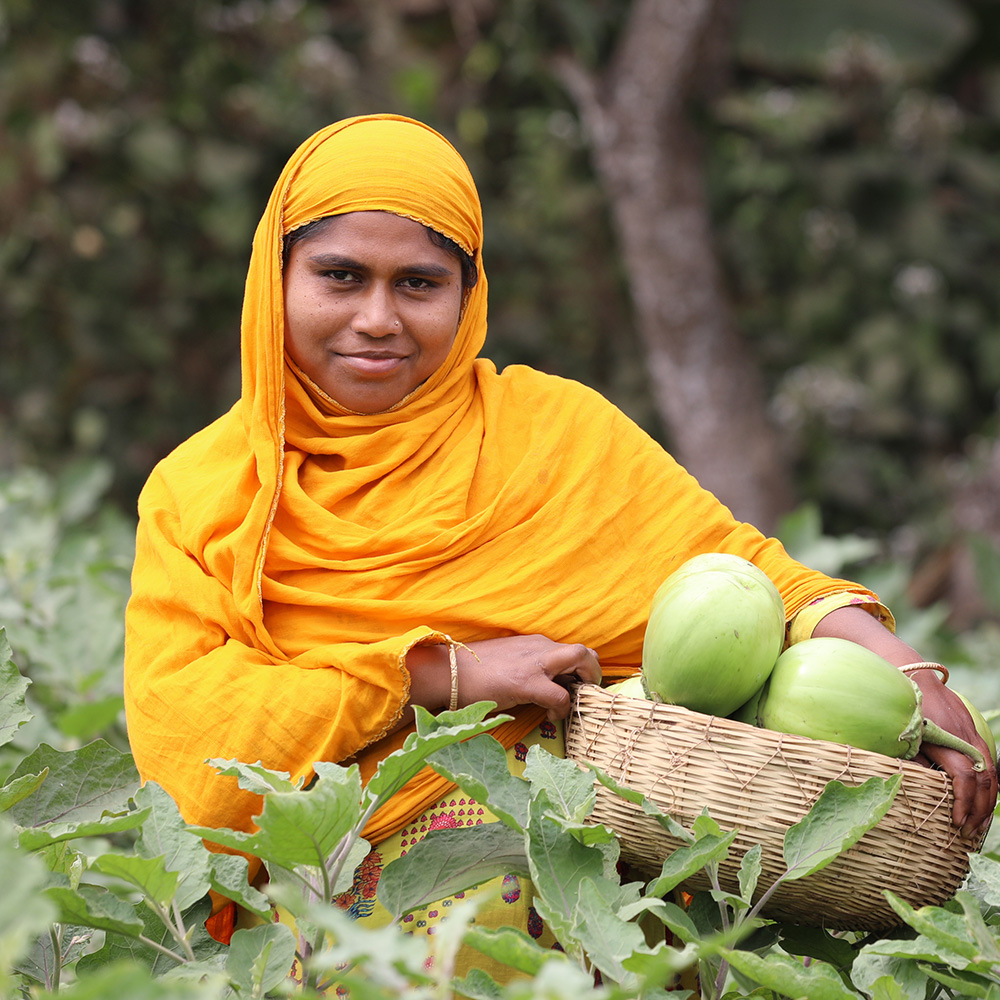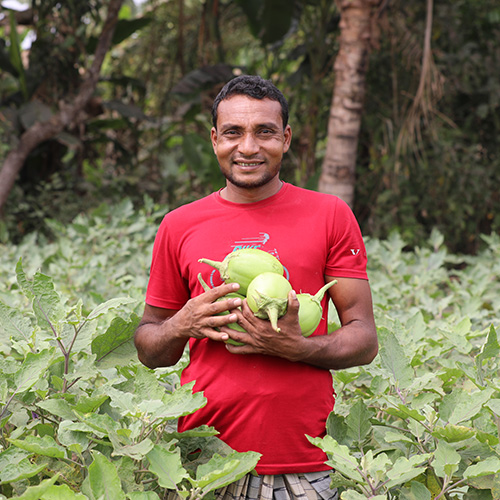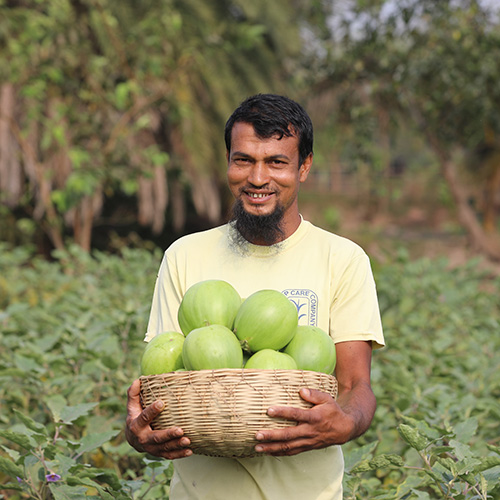Bt Brinjal Transforms Farmer Opportunities
In the windswept fields of Koyra Upazila, a coastal district in Bangladesh, vegetable farmers have long endured the challenges of cyclones, salty soils, and insect infestations. Eggplant farmers have been particularly hard-hit by the fruit and shoot borer, an insect that burrows deep into the eggplant and renders pesticides ineffective, leading to the loss of up to 80% of their produce. The erratic climate has only compounded these difficulties, making it increasingly challenging for farmers to sustain their livelihoods and provide for the district’s nearly 200,000 residents.
The tide turned for Koyra Upazila with the introduction of Bt eggplant, known locally as Bt brinjal. Developed by the Bangladesh Agricultural Research Institute (BARI) with support from the U.S. Agency for International Development (USAID), this genetically modified crop has brought renewed hope to the region. By drastically reducing the impact of the fruit and shoot borer, Bt eggplant has enabled farmers to produce healthier, marketable crops, thereby increasing their earnings and enhancing food security for the local population.
Koyra

“I first heard about the benefits of Bt brinjal from the local agriculture office,” said Abul Hasan, who, along with his wife Sabrina, began growing the bioengineered eggplant in 2019. “BARI informed us about Bt brinjal varieties that were high-yielding, required fewer pesticides, and could thrive in our saline-affected soil. I was skeptical at first, but I decided to give it a try.”
Abul’s initial skepticism quickly turned to success. That first season, he harvested significantly more eggplant from his small plot, earning a substantial profit. “With Bt brinjal, I spent far less on insecticides and harvested much more compared to traditional varieties,” he said. “This crop has been a game-changer for my family.”
Bt brinjal contains a gene from the soil bacterium Bacillus thuringiensis (Bt), which provides resistance to the fruit and shoot borer, reducing the need for pesticides and increasing yields. The Bt eggplant varieties developed by BARI have been shown to dramatically reduce pesticide use, lower production costs, and increase incomes.
“Thanks to the profits from Bt eggplant, I was able to enroll my daughter in school and cover all her expenses”
Sabrina HasanBt eggplant farmer
Inspired by the Hasan family’s success, neighbor Anisur Rahman began cultivating Bt brinjal the following year. “In the past, the costs of growing eggplant often outweighed the profits. Now, it’s the other way around,” he said.
For a farmer with two children and a family to support, the stability provided by that extra income is immense. “My income from Bt eggplant farming covers all our family’s needs,” he said. “Now, I can easily afford their education and my own expenses.”
Today, over 200 farmers in Koyra Upazila grow Bt brinjal, transforming the region’s agriculture. Bt brinjal has been available in Bangladesh for 10 years, earning farmers more income, reducing environmental impacts, and enhancing food security.
“Bt brinjal technology is a win-win-win for consumers, the environment, and farmers,” said Dr. Md. Harunor Rashid, BARI’s chief scientific officer.
According to Rashid, farmers growing traditional varieties could sell only around one-third of their harvest due to insect damage. That meant farmers spent money they could not afford to waste on insecticides that were ineffective while unnecessarily spraying potent chemicals into the environment.
“But with Bt eggplant, farmers can sell nearly everything they harvest, maximizing their profits,” Rashid said. “Bt eggplant has significantly improved the lives of farmers in this region.”
To spread awareness of the technology and its benefits, BARI organized educational sessions in Koyra to teach farmers about Bt brinjal and proper cultivation methods. “We learned about Bt brinjal through BARI’s sessions, and their officials supported us from cultivation to market access,” Abul Hasan said.
That extensive outreach led to greater awareness among farmers. After that, the results spoke for themselves.
“The profits from Bt brinjal have made a big difference in my life,” Sabrina Hasan said. With their farming profits, she was able to enroll their daughter in school, and the family built a brick house with a metal roof to replace their old thatched-roof home made of mud.
“Thanks to the profits from Bt eggplant, I was able to enroll my daughter in school and cover all her expenses,” she said. “I’m so happy to see how far I’ve come. I used to struggle financially, but now things are much better.”
The impact extends beyond Koyra. Previously reliant on imported vegetables, local farmers now meet community demand and sell produce outside the district. “Traders from larger cities like Dhaka, Khulna and Jessore also come here to buy from us,” Rahman said.
As Koyra’s farmers continue to prosper, the ripple effects are felt across the region. Innovation, collaboration, and scientific advancements are key to overcoming climate challenges and transforming lives in Bangladesh, Dr. Rashid emphasized.
“More parts of Bangladesh can benefit from Bt brinjal. Readily available seeds, training programs, and market access are crucial for replicating this model,” he added. Government incentives for adopting Bt technology could further accelerate its spread, ensuring broader agricultural success.
Discover more about how Bt eggplant transformed life for farmers in Koyra


Author
Sadique Uddin



